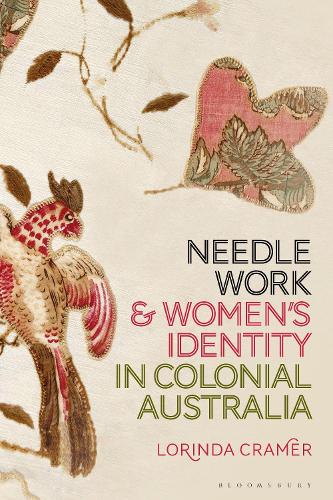
Needlework and Womens Identity in Colonial Australia
(Paperback)
Publishing Details
Needlework and Womens Identity in Colonial Australia
By (Author) Dr Lorinda Cramer
Bloomsbury Publishing PLC
Bloomsbury Visual Arts
25th February 2021
United Kingdom
Classifications
Tertiary Education
Non Fiction
Apparel, garment and textile industries
Gender studies: women and girls
History of art
Physical Properties
Paperback
264
Width 156mm, Height 234mm
367g
Description
In gold-rush Australia, social identity was in flux: gold promised access to fashionable new clothes, a grand home, and the goods to furnish it, but could not buy gentility. Needlework and Womens Identity in Colonial Australia explores how the wives, mothers, sisters, and daughters who migrated to the newly formed colony of Victoria used their needle skills as a powerful claim to social standing. Focusing on one of womens most common daily tasks, the book examines how needleworks practice and products were vital in the contest for social position in the turmoil of the first two decades of the Victorian rush from 1851. Placing women firmly at the center of colonial history, it explores how the needle became a tool for stitching together identity. From decorative needlework to household making and mending, womens sewing was a vehicle for establishing, asserting, and maintaining social status. Interdisciplinary in scope, Needlework and Womens Identity in Colonial Australia draws on material culture, written primary sources, and pictorial evidence, to create a rich portrait of the objects and manners that defined genteel goldfields living. Giving voice to womens experiences and positioning them as key players in the fabric of gold-rush society, this volume offers a fresh critical perspective on gender and textile history.
Reviews
Cramer expertly combines theory with close readings of material objects to illuminate womens crucial but often overlooked contributions to the solidification of British colonial power. * Ariel Beaujot, University of Wisconsin-La Crosse, USA *
In this highly original study, readers can see anew how genteel women made and remade themselves through needlework. A compelling read with aptly chosen objects and images. * Bronwyn Labrum, Museum of New Zealand Te Papa Tongarewa *
Author Bio
Lorinda Cramer was previously Associate Research Fellow at the Alfred Deakin Institute for Citizenship and Globilisation, Deakin University, Australia, and is now Postdoctoral Research Associate at the Australian Catholic University.
